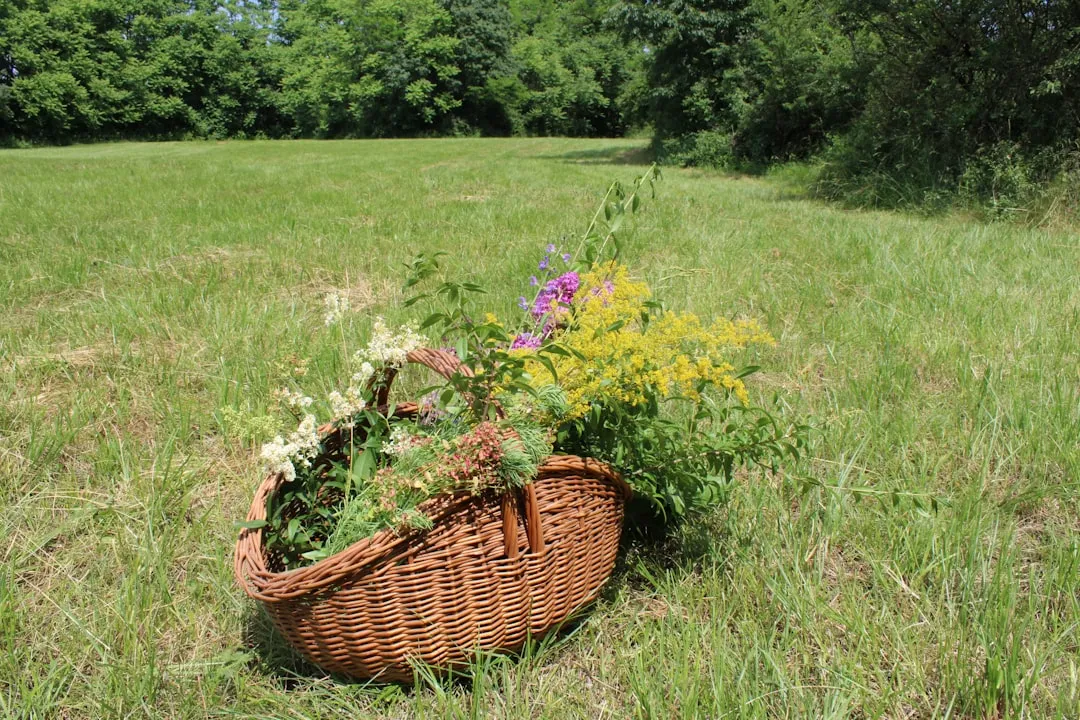The Double - Edged Sword of Herb Blooming

Edible gardening is a rewarding hobby that allows you to cultivate fresh, flavorful ingredients right in your own backyard. Among the various plants you might grow, herbs are a popular choice. They add a burst of aroma and taste to your dishes, and they're relatively easy to care for. However, one aspect that often puzzles gardeners is whether to let their herb plants bloom. Letting your herb plants bloom offers both pros and cons for your garden and your kitchen, and here's what you need to consider when your herbs start flowering.
First, let's explore the advantages of allowing your herb plants to bloom. One of the most significant benefits is the attraction of pollinators. Bees, butterflies, and other beneficial insects are drawn to the colorful and fragrant flowers of herb plants. These pollinators play a crucial role in the garden ecosystem. They help in the fertilization of other plants, including vegetables and fruits, which can lead to a more abundant harvest. For example, if you have tomatoes or cucumbers in your garden, the presence of pollinators can increase the fruit - set and the overall yield.
In addition to pollination, the flowers of herb plants can be aesthetically pleasing. They add a splash of color to your garden, creating a more visually appealing and inviting space. Whether it's the delicate purple flowers of lavender or the bright yellow blossoms of thyme, these blooms can transform your herb garden into a beautiful and serene oasis. Moreover, some herb flowers are edible themselves. Nasturtium flowers, for instance, have a peppery flavor and can be used to garnish salads or add a unique touch to sandwiches.
However, there are also some drawbacks to letting your herb plants bloom. One of the main concerns is the change in the flavor of the leaves. Once an herb plant starts to flower, it shifts its energy from leaf production to flower and seed production. As a result, the leaves may become less flavorful and more bitter. For culinary purposes, this can be a significant issue. Basil, for example, is known for its sweet and spicy flavor when the leaves are young. But when it starts to bloom, the leaves lose their characteristic taste, making them less desirable for use in pesto or other basil - based dishes.
Another problem is the potential for the plant to become leggy. When an herb focuses on flowering, it may grow tall and spindly, with fewer leaves close to the base. This not only affects the appearance of the plant but also reduces the overall harvest of usable leaves. If you're growing herbs primarily for their leaves, such as parsley or cilantro, allowing them to bloom can lead to a decrease in the quantity of fresh herbs available for your kitchen.
So, what should you do when your herbs start flowering? It depends on your goals. If you're more interested in the aesthetic appeal of your garden and attracting pollinators, then letting the herbs bloom can be a great option. You can enjoy the beautiful flowers and the benefits they bring to the garden ecosystem. On the other hand, if you're growing herbs for culinary use, it's often best to prevent them from flowering. You can do this by regularly pinching off the flower buds as soon as you see them. This will encourage the plant to focus its energy on leaf production, resulting in more flavorful and abundant leaves.
For some herbs, a compromise can be reached. You can let a few plants bloom to attract pollinators while keeping the rest in a non - flowering state for culinary use. This way, you can enjoy the best of both worlds. Additionally, you can harvest the flowers and use them in creative ways, such as making herbal teas or floral arrangements.
In conclusion, the decision of whether to let your herb plants bloom is a personal one that depends on your priorities. By understanding the pros and cons, you can make an informed choice that will help you get the most out of your edible herb garden. Whether you're a seasoned gardener or just starting out, being aware of these factors will enhance your gardening experience and ensure a bountiful supply of fresh herbs for your kitchen.